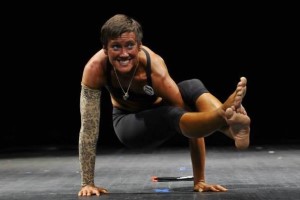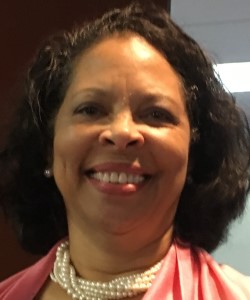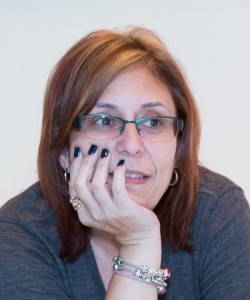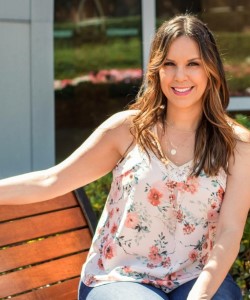My story: What Breast Cancer Awareness Month means to me
- 09/28/18
Every year, people, companies and organizations around the country recognize October as Breast Cancer Awareness Month. The occasion brings a wave of attention to breast cancer, but many of those affected have mixed feelings about it.
Here, four women share their impressions of Breast Cancer Awareness Month: what is good about it, what they hope for it and what frustrates them.
Dara Insley, 48
Joint Base Pearl Harbor-Hickam, Hawaii
Diagnosed with stage IIIc hormone receptor-positive breast cancer
 I am equally divided between loving and hating Breast Cancer Awareness Month.
I am equally divided between loving and hating Breast Cancer Awareness Month.
What I hate the month for:
I hate that the whole month is sexualized with memes and ads that make breast cancer out to be sexy. I have many friends living with metastatic breast cancer, so it’s potentially a whole body disease. It’s not just about breasts.
I also hate that wherever I go there is another pink ribbon on another product that may or may not actually support any kind of cancer help. I’m already aware and dislike the visual reminders of my own disease!
On the other hand, I am frustrated with everyone hating Breast Cancer Awareness Month because their X, Y or Z can-cer/disease/cause doesn’t get the same attention. Just because I got breast cancer and it’s popular for a month every year doesn’t mean I don’t care about other causes.
What I love the month for:
It has caused many a woman to remember her self-exams, to get a mammogram, or to see her doctor about “this lump,” which is exactly what good comes directly out of the month: awareness that it can be happening in your own body, not that it happens only to other people!
And, that some of the products do support various good and worthy breast cancer causes like Living Beyond Breast Cancer.
Wanda Johnson, 62
Houston, Texas
Diagnosed with stage IIa, hormone receptor-positive, HER2-positive breast cancer
 Breast Cancer Awareness Month is nationally designated for breast cancer survivors, advocates, caregivers, family, friends and healthcare professionals to recognize the triumphs, treatment successes, hope and quality of life of those impacted by the disease. I continually hope Breast Cancer Awareness Month activities will shift to focus on education and spreading hope, two messages I try to highlight as a breast cancer survivor and advocate.
Breast Cancer Awareness Month is nationally designated for breast cancer survivors, advocates, caregivers, family, friends and healthcare professionals to recognize the triumphs, treatment successes, hope and quality of life of those impacted by the disease. I continually hope Breast Cancer Awareness Month activities will shift to focus on education and spreading hope, two messages I try to highlight as a breast cancer survivor and advocate.
Historical events have played an important role bringing breast cancer to the limelight, sharing the message that it is no longer a taboo subject, highlighting the importance of research and need for funding, and let’s not forget fundraising for the cause.
It has been extremely important to focus on the role of early detection for the prevention and successful treatment of breast cancer. However, so much more needs to be done to educate and encourage those impacted so they can take their journeys from a perspective of hope rather than despair.
There needs to be more messages about access to care and the types of resources available in the clinic and beyond to assist survivors’ progress through their journeys with the hope of a better quality of life. Add to this list education about the availability and importance of participating in clinical trials and research studies while in treatment and beyond, because every person who receives a diagnosis of breast cancer is a beneficiary of previous successes and should participate at some level as a contribution to those who will be diagnosed after them.
Ilene Fogelman, 51
Weston, Florida
Diagnosed with stage IV, hormone receptor-positive breast cancer
 When I was diagnosed early-stage in April 2013, I loved October. I loved the Pink. I supported it blindly. I also did not know anything about stage IV and how it could occur any time after early-stage. I shared the hearts. I had the T-shirt. I organized the pinkification at work. September 2016 pushed me into reality. I was confirmed stage IV with metastasis to the lining of my lung and scapula. I started research and while there was information out there, it wasn’t coming from the same organizations pushing awareness. The money trail wasn’t going to research to cure stage IV, the only stage where women die. People around me, even others who had early-stage breast cancer, wore pink and talked about saving the tatas. There is nothing cute or sexy about cancer. If I could just be on a deserted island September through October, I would be happy. I am tired of people calling me a warrior or a survivor. It’s exhausting having to constantly explain I am terminal. The color pink has become a color I hate. I am tired of being made aware of something that 113 people die of daily. I know. I live it, and it doesn’t have a color.
When I was diagnosed early-stage in April 2013, I loved October. I loved the Pink. I supported it blindly. I also did not know anything about stage IV and how it could occur any time after early-stage. I shared the hearts. I had the T-shirt. I organized the pinkification at work. September 2016 pushed me into reality. I was confirmed stage IV with metastasis to the lining of my lung and scapula. I started research and while there was information out there, it wasn’t coming from the same organizations pushing awareness. The money trail wasn’t going to research to cure stage IV, the only stage where women die. People around me, even others who had early-stage breast cancer, wore pink and talked about saving the tatas. There is nothing cute or sexy about cancer. If I could just be on a deserted island September through October, I would be happy. I am tired of people calling me a warrior or a survivor. It’s exhausting having to constantly explain I am terminal. The color pink has become a color I hate. I am tired of being made aware of something that 113 people die of daily. I know. I live it, and it doesn’t have a color.
Jessica Shephard, 36
Tampa, Florida
Diagnosed with stage IIb, triple-negative breast cancer
 To be honest, my first reaction to Breast Cancer Awareness Month was … nothing. The messaging on most campaigns I’ve seen is still about getting checked early, or it’s a billboard with a silhouette of hands and one pair is a lovely pink. What is that really saying? I got checked but I still got breast cancer and I still went through treatment.
To be honest, my first reaction to Breast Cancer Awareness Month was … nothing. The messaging on most campaigns I’ve seen is still about getting checked early, or it’s a billboard with a silhouette of hands and one pair is a lovely pink. What is that really saying? I got checked but I still got breast cancer and I still went through treatment.
Since my own diagnosis of cancer, I have started to think there is nothing wrong with Breast Cancer Awareness Month, but the “awareness” piece has gotten washed out and it doesn’t go deep enough into the disease. It barely skims the surface. I know other survivors who share the same sentiment.
I share the names of those organizations that directly helped me during my diagnosis, treatment and even post-cancer on my blog and on my social media pages. I feel it is especially important to share these during a time when many are adding pink ribbons to their profile picture and while our pizza is delivered in cute pink boxes.
Before handing over money to an organization that says it’s for “breast cancer,” I ask that my friends and followers take an extra 5 minutes to use sites such as Charity Navigator to see how that organization distributes its donations.
Stay connected
Sign up to receive emotional support, medical insight, personal stories, and more, delivered to your inbox weekly.


